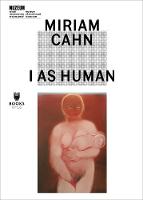


|
|
|
books
| book details |
Miriam Cahn – I As Human
By (author) Marta Dziewanska, By (author) Kathleen Bühler, By (author) Adam Szymczyk, By (author) Éric De Chassey, By (author) Paul B. Preciado, By (author) Paul Preciado, By (author) Élisabeth Lebovici, By (author) Anna Ara, By (author) Fernando López Garcia

|
| on special |
normal price: R 1 495.95
Price: R 1 420.95
|
| book description |
A rebel and feminist, the Switzerland-born Miriam Cahn is one of the major artists of her generation. Widely known for her drawings and paintings, she also experiments with photography, moving images, sculptures, and performance art. Cahn's diverse body of work is disturbing and dreamlike, filled with striking human figures pulsing with an energy both passionate and violent. These pieces, along with Cahn's reflections on artistic expression, have always responded to her contemporary moment. In the 1980s, her work addressed the feminist, peace, and environmental movements, while the work she produced in the 1990s and early 2000s contains allusions to the war in the former Yugoslavia, the conflict in the Middle East, and the September 11 terrorist attacks. Her recent production tackles ever-evolving political conflicts, engaging with the European refugee crisis and the ""#metoo"" movement. Miriam Cahn: I as Human examines different facets of the artist's prolific and troubling oeuvre, featuring contributions from art historians, critics, and philosophers including Kathleen Bühler, Paul B. Preciado, Elisabeth Lebovici, Adam Szymczyk, Natalia Sielewicz and .
| product details |

Normally shipped |
Publisher | Museum of Modern Art in Warsaw
Published date | 12 Feb 2019
Language |
Format | Paperback / softback
Pages | 248
Dimensions | 204 x 145 x 14mm (L x W x H)
Weight | 274g
ISBN | 978-8-3641-7755-2
Readership Age |
BISAC | art / history / general
| other options |
|
|
|
To view the items in your trolley please sign in.
| sign in |
|
|
|
| specials |
|

|
Mason Coile
Paperback / softback
224 pages
was: R 520.95
now: R 468.95
|
A terrifying locked-room mystery set in a remote outpost on Mars.
|
An epic love story with the pulse of a thriller that asks: what would you risk for a second chance at first love?
|
|
|
|
|
|